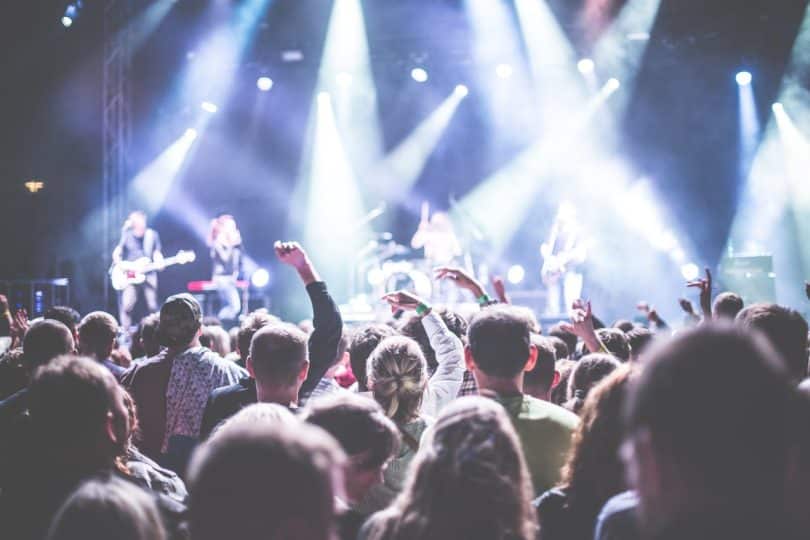Music and sports have long gone hand in hand. If you are a true sports fan, then you’d probably understand the feeling you get when you hear a certain tune that reminds you of a particular sport.
This is quite explainable. First of all, both music and sports spark emotions, which is why they go really well together. Now, when it comes to actual tunes, there are many different types.
Some are designed to entertain the audience and people watching, some add deeper meaning to the world of sports (like national Anthems), and others are just for celebrating (like the “We Are the Champions” song).
So, since music is so important in the world of sports, let’s dig a bit deeper and find out the type of music played at sporting events and the meaning of music in the world of sports.
Halftime Shows That Stole the Spotlight
In the past couple of years, the halftime shows like the one on the Super Bowl have the center stage in entertainment. To be honest, most people who watch this event are only interested in the performers at the halftime show, not in the actual sport.
This is obviously an American thing, just because they are well-known for playing sports a lot more entertaining for us fans. There are opening ceremonies and closing ceremonies at big events like the World Cup, which are kind of similar to the halftime shows, but they last longer.
And these performances are huge. Rihanna’s Super Bowl LVII performance drew 121 million viewers, and this year’s Kendrick Lamar’s Super Bowl LIX show in New Orleans was even popular thanks to the “beef” with Drake.
These shows aren’t just concerts. They are a huge entertainment factor that makes sporting events even more interesting to watch. We also have the Super Bowl LIV show, where Shakira and J’Lo reached 103 million views globally.
So, are they necessary? – No. But they sure make the world of sports more interesting to watch.
Anthems That Define the Game
Some songs are as iconic as the sports they soundtrack. “Sweet Caroline” at Boston’s Fenway Park, belted by 37,000 Red Sox fans, is a ritual since 1997. Soccer’s “You’ll Never Walk Alone” unites Liverpool FC supporters worldwide, a tradition since the 1960s. In 2025, these anthems are more than tunes—they’re tribal calls.
Even horse racing as a sport is full of iconic songs that define the game. Let’s do a test: what’s the first thing that comes to mind when you hear “My Old Kentucky Home”? Probably, horse racing, right?
It probably inspires you to make a bet using the latest horse racing picks and watch some adrenaline-filled racing.
The UEFA Champions League theme, adapted from Handel’s “Zadok the Priest,” gives players goosebumps. Even classical music crashes the party: Pavarotti’s “Nessun Dorma” became a 1990 World Cup staple.
Anthems can be team-based (popular songs adopted by the team), or we can talk about National Anthems, which add another layer of emotions to the world of sport. Can you imagine when athletes or fans hear their national anthem? Athletes have extra motivation, and fans are hyped even more to watch the game.
They turn stadiums into sing-alongs, binding fans across generations.
Athletes Who Drop Beats
When athletes grab the mic, worlds collide. Shaquille O’Neal’s 1993 rap album Shaq Diesel went platinum, blending NBA swagger with hip-hop. Yes, Shaq dropped an album, and to be honest, it is not bad.
Kobe Bryant, before his 2020 passing, dabbled in rap, even taking Brandy to prom. In 2025, Damian Lillard (aka Dame D.O.L.L.A.) keeps the trend alive, with his 2024 album hitting Billboard charts.
Soccer’s John Barnes rapped on New Order’s “World in Motion” for England’s 1990 World Cup, a UK No. 1 hit. These crossovers aren’t just side gigs—they shape culture. ESPN’s The Crossover: 50 Years of Hip-Hop and Sports (2023) notes how hip-hop gave athletes like Muhammad Ali a voice. Athletes-turned-artists bring raw energy, merging locker room grit with studio flow.
Music’s Cultural Impact on Sports
Music doesn’t just play in the background—it reshapes sports culture. Hip-hop, born in 1973, gave athletes a platform for activism.
Ali’s poetic trash-talk inspired rap, with Gil Scott-Heron crediting him as rap’s root. In 2025, hip-hop’s influence is everywhere: NBA walkouts vibe to Drake or Travis Scott. Grime’s rise in the English Premier League, soundtracking 2023 player intros, reflects soccer’s diversity.
Music also bridges fandoms—Moloko’s “The Time Is Now” became a Premier League anthem in 2005. The Crossover documentary highlights how hip-hop armed athletes with cultural power. From civil rights to modern arenas, music amplifies sports’ social pulse. It’s a megaphone for identity, uniting athletes and fans in shared beats.
So, who would have thought that music impacts the world of sports so much, right? Sporting events wouldn’t be the same without music, that’s for sure.
Therefore, when you watch your next match and hear a song that sparks emotions, know that this song is intentionally placed there just to make everything more polished and fun.













